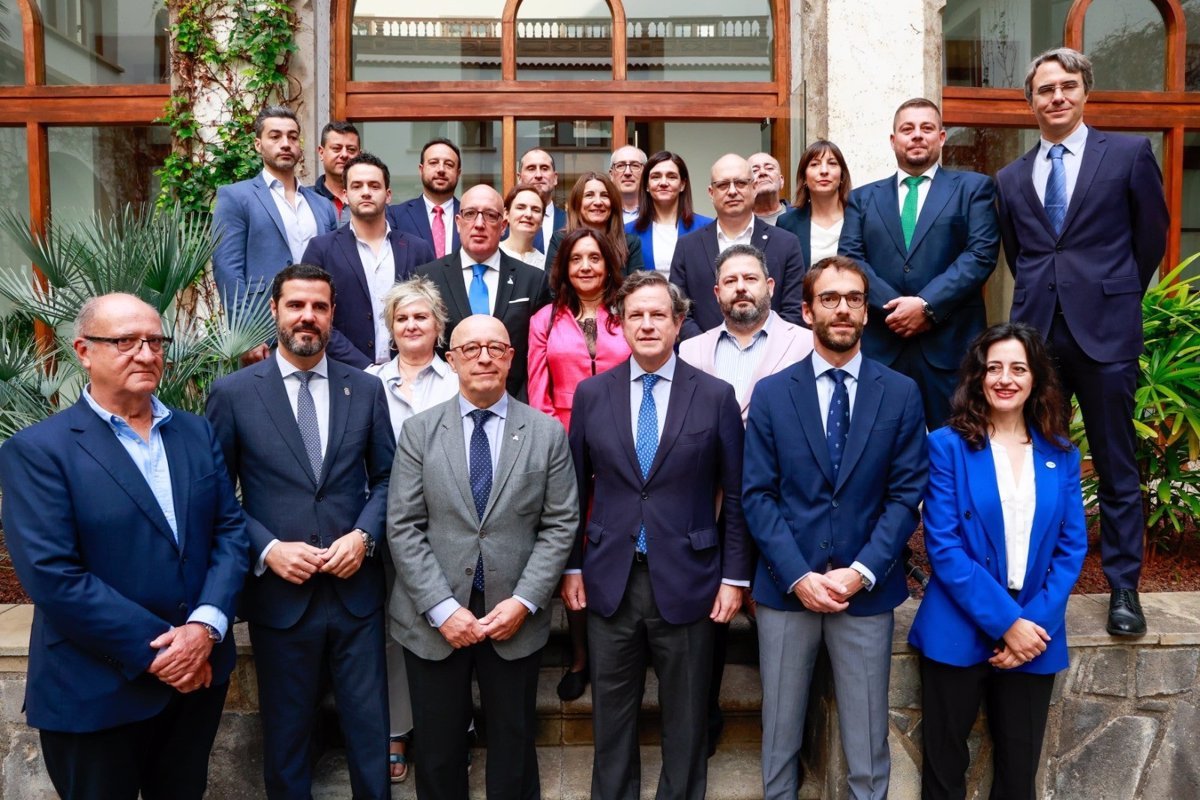Canarias se une al manifiesto por una estrategia nacional de economía azul.

The Government of the Canary Islands inaugurated on Thursday the ‘Opportunities of the Blue Economy’ Conference, where the Mencey manifesto for a ‘Spanish Blue Economy Strategy’ was signed by all public and private representatives of sectors linked to the blue economy. Additionally, the Canary Islands became the first autonomous community to sign this national strategy.
In a statement, the Vice Minister of Economy and Internationalization of the Government of the Canary Islands, Gustavo González de Vega, highlighted the importance of the manifesto to unify a strategy around a "strategic sector for the Canary Islands and that represents a huge opportunity to diversify the economy of the islands."
"Each autonomous community has its roadmap in this area, but the State lacks a joint strategy, hence the importance of this manifesto to kickstart the public-private commitment to activities related to the sea," he emphasized in a note issued by the regional department.
Pedro Suárez, president of the Port Authority of Santa Cruz de Tenerife, emphasized the value of a conference to "try to channel and homogenize" Blue Economy policies in application or development in all regions of Spain. "Pursuing excellence, we undoubtedly join this type of activity, complementing other initiatives in development such as the Blue Economy Chair, with the ULL."
In this context of "unity and joint work," Suarez proposed the creation of a lobby constituted by the different state maritime clusters and the Canary ports to try to amend the European Emissions Trading System (ETS) market regulations, which "reduce the competitiveness and international connectivity" of the Canary ports compared to African ports, "exempt from compliance with this regulation."
CLUSTERS MEETING ON BLUE ECONOMY
The meeting in Tenerife brought together representatives of all blue economy clusters in Spain: Basque Maritime Forum, Cantabrian Maritime Cluster, Catalan Maritime Cluster; Naval Maritime Cluster of Cádiz, Naval and Sea Technological Center of Murcia, Balearic Islands Maritime Cluster, Galician Naval Cluster, Maritime-Marine Cluster of Andalusia, in addition to the Spanish Maritime Cluster.
The president of the Spanish Maritime Cluster, Javier Garat Pérez, defined the initiative as a "complete success" for being able to bring together all regional clusters from all over Spain to discuss the future challenges of the blue economy and sign this manifesto.
"The manifesto comes at a perfect time, as the European Ocean Pact is being debated in Brussels, to be presented in Nice in June, which will set the roadmap for the European Commission on everything related to the oceans, including all economic activity," explained Garat.
He contextualized that different Spanish communities have regional strategies on blue economy but there is no national strategy. "It is an important wake-up call. This manifesto reflects all the arguments on which it is necessary to have this country strategy," he warned.
The president of the Canary Islands Maritime Cluster (CMC), Germán Suárez Calvo, expressed that the manifesto sends a message to civil society, as it is not "just about companies, not just about the private sector." "In our organizations, there is also the public sector, knowledge-generating entities, etc."
The ‘Spain in Blue’ Conference also addressed the opportunities of this economic sector by organizing all subsectors of activity into five roundtables: exploitable living resources; living resources, transport and logistics, shipbuilding, and tourism.
ABOUT THE MANIFESTO
The Manifesto for a Spanish Blue Economy Strategy explains that the set of economic activities related to the sea, the blue economy, represents one of the strategic growth vectors for Spain in the 2030-2050 horizon: direct and indirect economic impact, contribution to the sustainability of the planet, capacity to generate quality employment, technological innovation, and territorial cohesion.
The document warns that Spain has the potential to continue leading blue growth in Europe, as it leads the subsectors of fishing and aquaculture, is a reference in coastal tourism, has one of the largest naval fleets, and has "enormous potential" in marine renewable energy, blue biotechnology, port digitalization, and oceanic research.
They point out that Spain ranks as the third economy in Europe, in our contribution to the gross value added of the Blue Economy of the European Union, and the first in employment contribution. At the national level, it represents 7% of the gross value added (GVA), generates more than 21.277 million euros per year and adds more than 625,000 jobs. Thus, they point out, the blue economy in Spain generates a significant multiplier effect.
After reviewing the main magnitudes of the main economic subsectors, both in consolidated areas and potential emerging ones, the manifesto summarizes the strengths of each of the coastal territories of the country.
Finally, the text states that Spain is in a "privileged position" to lead the Blue Economy in Europe. However, for this, "impetus is essential from a state vision," based on public-private collaboration, collaborative strategic planning, and international aspirations.
State leadership, it continues, must be the driving force that consolidates Spain as a power in the Blue Economy, through the alignment of government policies with European and global sustainability goals.
It is also argued that the Spanish Blue Economy Strategy should be established as a "political and technical instrument that guides and coordinates, in a sustainable and innovative way," the development of all economic activities linked to the sea and aquatic environments.






